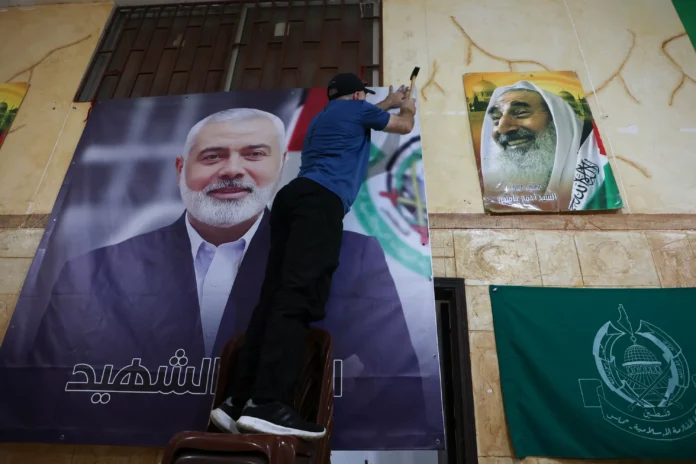The world was left in shock and disbelief as news broke of the assassination of Hamas political leader Ismail Haniyeh in an Israeli airstrike in Tehran on Wednesday. The international community was stunned by this brazen act of violence, which has further escalated tensions in the already volatile Middle East region.
Haniyeh, who was known for his strong stance against Israeli occupation and his unwavering support for the Palestinian cause, was attending a conference in Tehran when the airstrike targeted the building he was in. The attack, which was carried out by Israeli forces, has been condemned by leaders and organizations around the world.
The United Nations Secretary-General Antonio Guterres expressed his deep concern over the incident and called for an immediate de-escalation of tensions in the region. He also urged all parties to refrain from any actions that could further aggravate the situation and lead to more bloodshed.
The European Union also condemned the assassination, with its foreign policy chief Josep Borrell stating that such actions only serve to fuel violence and hinder efforts towards peace and stability in the region. He called for a thorough investigation into the incident and for those responsible to be held accountable.
The killing of Haniyeh has not only sparked outrage and condemnation, but it has also raised questions about the legality and morality of targeted assassinations. The use of such tactics by any country goes against the principles of international law and human rights, and it is a violation of the right to life.
Haniyeh’s death has also dealt a severe blow to the Palestinian people, who have lost a strong and influential leader. He was a symbol of resistance and hope for the Palestinian cause, and his assassination has left a void that will be difficult to fill.
The timing of this attack is also significant, as it comes at a time when the region is already facing numerous challenges. The ongoing conflict between Israel and Palestine, the civil war in Syria, and the tensions between Iran and the United States have created a volatile and unstable environment. The assassination of Haniyeh has only added fuel to the fire and has the potential to escalate the situation further.
The international community must come together and take immediate action to prevent further violence and bloodshed. The United Nations and other global organizations must play a more active role in mediating and finding a peaceful resolution to the conflicts in the Middle East. It is crucial for all parties involved to engage in dialogue and find a way to coexist peacefully.
The killing of Haniyeh has also highlighted the need for a lasting and just solution to the Israeli-Palestinian conflict. The Palestinian people have been suffering for decades, and it is time for the international community to take concrete steps towards ending their plight. The two-state solution, with Israel and Palestine living side by side in peace and security, remains the only viable option for a lasting peace in the region.
In the wake of this tragic event, it is essential for all parties to exercise restraint and refrain from any actions that could further escalate tensions. The international community must also continue to support the Palestinian people and their legitimate aspirations for statehood and self-determination.
The assassination of Ismail Haniyeh has sent shockwaves around the world, and it is a stark reminder of the fragility of peace in the Middle East. It is a call to action for the international community to work towards finding a lasting solution to the conflicts in the region and to prevent such senseless acts of violence from happening again.
In conclusion, the killing of Ismail Haniyeh is a tragic event that has left the international community stunned. It is a reminder of the urgent need for a peaceful resolution to the conflicts in the Middle East and for all parties to work towards a future of coexistence and mutual respect. Let us honor Haniyeh’s memory by striving for a world where violence and bloodshed are no longer the norm, but peace and harmony prevail.


